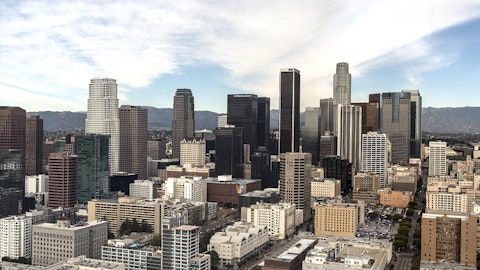By Javier Hasse and Uriel Kuzniecki
We love reading; but we also love movies, and find them particularly useful to better comprehend complicated issues and historical processes – especially those we could not witness directly or were not even alive to see or hear about. The Cold War seems somewhat distant already, and younger people cannot fully grasp its reach and implications just by reading about it. This is why we have come up with a list (similar to our 6 Films About the Financial World You Need To Watch) of 6 movies about the Cold War that you should watch to better understand it.
These motion pictures are, to us, exquisite works of art with plenty of content within, standing out for both their educational and informational value, as well as for their great direction, production and acting.
Dr. Strangelove or: How I Learned to Stop Worrying and Love the Bomb (1964)
In this masterpiece by Stanley Kubrick, Jack D. Ripper, a demented U.S. Army General, plans and pushes a scheme to start a nuclear attack against the Soviet Union, in order to prevent what he believes is a plan to contaminate the water of the U.S., and of its citizens’ body fluids.
The film shows President Merkin Muffley meeting up with his top Pentagon advisors –Dr. Strangelove included- in order to avoid a nuclear holocaust, as the news of the Soviets’ “Doomsday Machine” -which would destroy the entire world if the Russians were attacked- strikes them.
This heads almost every movie rank about the Cold War, mainly because it succeeds in showing -in a comic key- how the destiny of millions of human beings hung from a thread during the bipolar era.
Interesting facts:
While shooting aerial scenes over Greenland, the crew accidentally filmed a secret U.S. military facility. The plane was forced to land, and the crew was investigated for alleged spying.
Scores:
8.5/10 – IMDb
100% – Rotten Tomatoes
The Deer Hunter (1978)
This three-hour movie, directed by Michael Cimino, looks into the lives of three blue-collar friends from a small town in Pennsylvania before, during and after the Vietnam War, and shows how their lives were completely affected by this phenomenon.
Although this movie does not make direct reference to the Cold War, the Vietnam War was clearly one of its most important chapters, and could therefore not be left out of this list. In this regard, the movie not only shows one of the ways in which the Cold War became not-so-cold for the American and vietnamese people (among others), but also -and most importantly- it portrays some of the images (the one of Robert De Niro playing Russian roulette is probably the most famous) that would act as the symbol of one of the biggest traumas that the American society has experienced throughout its history.
Interesting facts:
The movie won 5 Oscars in 1978, including the ones for Best Movie and Best Director.
Scores:
8.2/10 – IMDb
93% – Rotten Tomatoes
Good Bye Lenin! (2003)
This movie, which many of you might have already seen, is just genius! Alex, a young German, implements an elaborated scheme to prevent his mom, who has been in a coma for 9 months, from discovering that the Berlin Wall has been torn down, and that German Democratic Republic no longer exists, as any shock could prove to be fatal in her fragile state.
The movie is a great first step into understanding how the Cold War actually got to shape the life of millions of people, both in its material and its ideological aspects.
Interesting facts:
The film’s story is loosely based on the last two years of Lenin’s life. To avoid trauma, Stalin had him living in a controlled environment, and provided him with altered versions of the newspaper every day.
Scores:
7.8/10 – IMDb
90% – Rotten Tomatoes
The Atomic Cafe (1982)
This documentary features a somewhat disturbing collection of archival film from the 1940s, 1950s and early 1960s, related to the nuclear warfare and other Cold War issues. This dark-humored piece approaches the topic of a nuclear holocaust from a comedic perspective, taking advantage of the sometimes-ludicrous statements found in news footage and U.S. government-produced films of that time. However, the aim is not to get audiences to laugh, but rather to identify the misinformation campaign conducted by the U.S. government over the period.
Interesting facts:
It took five years for the documentary to be completed; work began in 1977.
Scores:
7.7/10 – IMDb
100% – Rotten Tomatoes
The Spy Who Came in from the Cold (1965)
This motion picture, based on the 1963 novel of the same name by John le Carré, features a British agent, Alec Leamas, who refuses to retire from his Cold War espionage duties during the 1960s, and instead chooses to face another mission: he would infiltrate into East German espionage circles and spread disinformation about a powerful intelligence officer. Everything starts spiralling down from that moment on, and the last scene, with him standing over the Berlin Wall, is just pure perfection.
Interesting facts:
Author John le Carré based his novel on his real-life experience as a British Intelligence officer in Berlin during the 1950s and 1960s.
Scores:
7.7/10 – IMDb
85% – Rotten Tomatoes
Invasion of the Body Snatchers (1978)
This remake of the 1956 movie of the same name was directed by Philip Kaufman and starred by Donald Sutherland, Brooke Adams, Veronica Cartwright and Leonard Nimoy. The plot turns around a group of people who discover that humans are being replaced, one by one, with extraterrestrial clones devoid of human emotion, which plan to take over entire cities and maybe even the whole world
During the Cold War, sci-fi filmmakers have been particularly inclined to include political views into their films, and many have regarded this flick as a portrayal of the silent dangers of an expansionist communist ideology together with the need to do whatever within our reach to prevent it from spreading.
Interesting facts:
Kevin McCarthy, the star of the original film plays a small role in the remake. Don Siegel, director of the original feature, also has one.
Scores:
7.4/10 – IMDb
96% – Rotten Tomatoes





